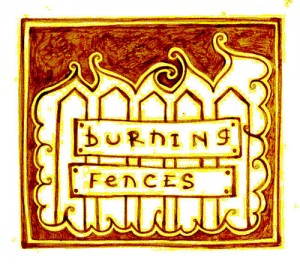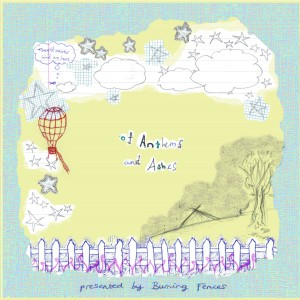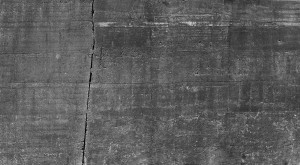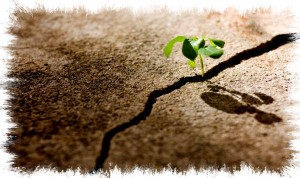
The Alleluia is to be sung with the psalms and responsories from Easter Sunday until Pentecost
Is it Hallelujah or Alleluia?
This chapter is very timely as we begin Holy Week. St. Benedict is discussing the use of the Alleluia chant within the prayers of the community and it might seem, to some of you, of little importance as to whether we are able to say ‘alleluia’ at some times and not at others. At worst this seems to be legislative for no reason and we should be able to say it at anytime. This is true but, for St. Benedict and the Western Church, there is a reason which can be helpful.
The question of the traditional liturgical customs is a litmus test within Christian circles; one which can become petty and pointless very quickly. For one tradition liturgical seasons, cycles, formulas and customs are of no use and arbitrary and we should be set free to respond to the Spirit in the way we see fit. For the other end of the spectrum liturgical guidelines are helpful as they lead us through a rhythm of the year which, when our feelings and natural instincts let us down we can be held within a framework by the grace of God. As with most things it comes down to intention and approach. The liturgical traditions of the church were set out for very important reasons and were there to help guide and protect the Church from every fresh wind of teaching. They are, however, like the Law of Moses; designed to be helpful but can easily suffocate and destroy if not treated properly.
In this day and age with electricity giving us extended working light, preserving food well beyond their natural seasons, we have little to no appreciation of seasons. This is particularly true of food, work and weather. We have done well in the developed world of being able to control our environment and it is possible to get what we want, when we want it and in the way that we want it. There is no sense of being restricted by external influences. When these restrictions impinge on our lives it frustrates us; when we can’t get the item of food we want, when we are unable to work when we want and when we are unable to travel to the places we want.
The world, however, relies on the season to give balance, to give rain when it’s needed and sun. Creation is a delicate system which has worked since well before humanity learnt how to manipulate it. The pre-industrial humanity were very sensitive to times and seasons and set their lives by the creation around them. They were in tune with it and were able to steward the world in a sustainable and natural way. In recent decades, with the effect that civilisation has had on the environment we are looking to reinstate this ‘eco’ agenda. The difficulty comes when it effects us, when it impacts our lives and it costs us. We don’t want our desires to be restrained; this doesn’t make us happy and surely that is what we want, to be happy!
Liturgical seasons are the same. They are there to force us to be sensitive to the ebb and flow of life. The book of Ecclesiastes names this,
For everything there is a season, and a time for every matter under heaven:
a time to be born, and a time to die;
a time to plant, and a time to pluck up what is planted;
a time to kill, and a time to heal;
a time to break down, and a time to build up;
a time to weep, and a time to laugh;
a time to mourn, and a time to dance;
a time to throw away stones, and a time to gather stones together; a time to embrace, and a time to refrain from embracing;
a time to seek, and a time to lose;
a time to keep, and a time to throw away;
a time to tear, and a time to sew;
a time to keep silence, and a time to speak;
a time to love, and a time to hate;
a time for war, and a time for peace.
There is a time to celebrate and there are times to be penitent. If we only followed what we felt and thought, with our limited understanding of our inner life, then we would be probed to fall heavily into personal preference. The liturgical structures defend us from that. They correct us. They give us a balanced diet, room for rest and work and appreciation for all spiritual weathers.
So, for the matter at hand; Hallelujah/Alleluia means ‘Praise the Lord.’ It was left untranslated by the early Christians and was understood to be one way to remain connected to the Jewish faith from which they came from. As the New Testament texts (the gospels and the letters) and it reached people with little to no understanding of the Hebrew language it was finally transliterated. Greek has no ‘h’ equivalent and so that letter was dropped creating Allelujah. It then evolved, when translated from the Greek into Latin to Alleluia.
Of course we can ‘Praise the Lord’ whenever we want to. In fact the Psalms tell us to do so! The Psalms also encourage us to do the opposite, to challenge and rail against God. There are times when we need to experience the times when we can’t ‘Praise the Lord’; we need to enter into times of experiencing the perceived absence of God to better appreciate our need for Him. For St. Benedict, ‘Alleluia’ is not used through Lent, a time when we are called to reflect on our human natures, the darkness that exists in our world and so, when Easter morning arrives, we drink in the Allleluias for we have thrusted for them for forty days.
But, as I said before, like most things, this custom can become suffocating and restrictive. That which meant to bring life and a roundness to our spiritual life, can easily become death to it. Jesus’ issues with the Pharisees was not that they were completely wrong, indeed he says of them,
For I tell you, unless your righteousness exceeds that of the scribes and Pharisees, you will never enter the kingdom of heaven. (Matthew 5:20)
The issue was that they were too cautious and protective. Issues of fasting, sabbath, healing that Jesus locked horns with them over, all of them came down to freedom within the framework. The rules and guidelines are there to enable us to be safe but free. If we cast them off then we are vulnerable to the whims of our temptable spirits.
Reflection
As a priest in a parish, I see it as my role to watch the edges of the Christian community, not as a patrol guard but as an advisor. To look out for those who get hurt in the wide open fields beyond God’s Kingdom and to bring them into safety. To remind people who stray beyond the boundaries the sustenance and blessings of that which they are leaving. Ultimately to bridge that fringe as a point of connection.
Don’t get me wrong, I don’t believe the Church should have rigid edges, barriers and walls. I see the Church as centred rather than edged. This is best explained by a short parable:
The Kingdom of God is like a manager coming to check on one of his farms. The farmer who ran the property and kept the sheep welcomes the manager to the homestead and gives him the freedom to look around and to assess the health of the flock and take an inventory.
You are free to explore the acres of land and bring back your report of what you see and find.
The manager sets out to walk the grounds that sprawl into the horizon. He explores the land that is marked on the map as belonging to the farmer, he checks the quality of the grass and he counts sheep. Having not fallen asleep after such an exercise he makes random spot checks on the quality of the meat and the health of the animals.
What he views is very good and he is impressed with the farmers care and clearly profitable oversight of his treasures. The sheep are healthy, happy and safe, the grass and grounds are well kept and free of chemicals. After a long day he returns to the farmhouse to meet with the farmer.
It’s all very impressive.
The manager says,
The sheep are healthy and you have many ready for market. There is one thing, which troubles me… You don’t have any fences. Your land is just spread far and wide and there’s no visible demarcation to the neighbouring farmers’ lands. How do you keep all your sheep together and close by?
The farmer replies,
I dig very deep wells.
As an ordained person I am to be the sign of connection between the local expression of the Body of Christ and the national, global and historical Church. I am to keep us rooted in the faith, passed down from generation and generations; a faith which has been shaped by the wisdom and experience of the ages passed. This is not always a comfortable place or role to play but it is a cost. Yes, traditions must be tested but I deny the temptation to flee or reject the framework when it doesn’t please me or gets me what I want. Yes, I speak from a privileged position of being a white, male, middle class in a historically powerful, often oppressive, nation. So I turn to the church of the liberation movement who, as far as I can read, are strict observers of tradition and find the joy and freedom within the strength of the Apostolic faith based on the creeds and formularies of the Church.
Tradition acts as the deep wells, tried and tested in many contexts. They are not the water, but the channels through which we plunge to access the Living Water, Jesus Christ. I find it comforting to know that no matter how I’m feeling, how weak or broken I am I can go to the wells and find water. Our job, as the Church locally, is to carry people too far from the water to the wells and help them to drink.
Living Water, flow. Burst through the concrete tunnels we hide you in and protect ourselves from your flood with. For the places where we restrict unnecessarily, have mercy on us and reveal yourself.
Come, Lord Jesus.
 I have had the privilege of being welcomed into a community over the last year which has had an ongoing and deeply transformative impact on me and my vocation as an ordained priest. The community are mainly in their twenties and would, at a cursory glance, be classified as ‘arty’ intellectual types, although this is not entirely true; not that they are not either of those things but that which unites this group isn’t those two general categories. It is only in the last month or so that I have begun to grasp the ‘charism’, the ‘je ne sais qua’, of Burning Fences.
I have had the privilege of being welcomed into a community over the last year which has had an ongoing and deeply transformative impact on me and my vocation as an ordained priest. The community are mainly in their twenties and would, at a cursory glance, be classified as ‘arty’ intellectual types, although this is not entirely true; not that they are not either of those things but that which unites this group isn’t those two general categories. It is only in the last month or so that I have begun to grasp the ‘charism’, the ‘je ne sais qua’, of Burning Fences. Before I stumbled through the doors one cold December night, this community had been meeting, singing and telling stories for a year or more. They had produced a CD of songs which they had developed entitled ‘Of Anthem and Ashes’. The images that were resonating with them then and remain reverberating through our times together are phoenix like resurrections; songs sung in the rubble, new plants breaking through concrete. These images have always resonated with me and it’s why I know I am a ‘fence burner’.
Before I stumbled through the doors one cold December night, this community had been meeting, singing and telling stories for a year or more. They had produced a CD of songs which they had developed entitled ‘Of Anthem and Ashes’. The images that were resonating with them then and remain reverberating through our times together are phoenix like resurrections; songs sung in the rubble, new plants breaking through concrete. These images have always resonated with me and it’s why I know I am a ‘fence burner’. The times when Church is most frustrating, for me, is in the ‘necessary organization’. What irks me is the lack of convincing Biblical precedent. The Temple system failed and yet here we are in the 21st century rebuilding it. I get it, organic is messy and uncontrollable, unpredictable but it’s how the world functions. We human beings are devastating when we control and tinker with the organic creation. We’ve tried to organize the world and what we discover is we’re trapped in boxes which do not fit nor encourage us to flourish in the ways in which we should.
The times when Church is most frustrating, for me, is in the ‘necessary organization’. What irks me is the lack of convincing Biblical precedent. The Temple system failed and yet here we are in the 21st century rebuilding it. I get it, organic is messy and uncontrollable, unpredictable but it’s how the world functions. We human beings are devastating when we control and tinker with the organic creation. We’ve tried to organize the world and what we discover is we’re trapped in boxes which do not fit nor encourage us to flourish in the ways in which we should.





